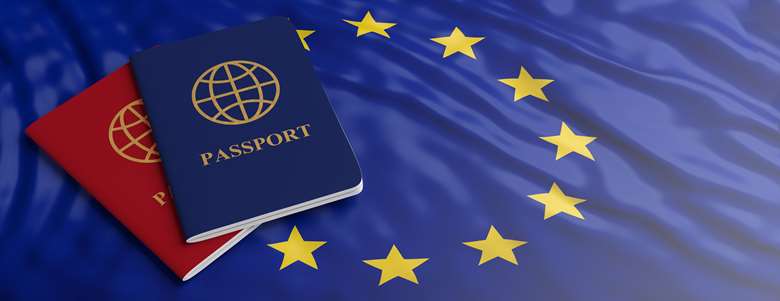Visas and work permits in Europe: advice for musicians
Liam Budd
Friday, February 26, 2021
The ISM’s senior external affairs & policy manager Liam Budd explains what music professionals working in Europe need to consider in terms of travel documentation post-Brexit.

As the dust settled on the trade agreement between the UK and the EU, it quickly became clear that earlier promises and assurances made by the government had not materialised, and that touring musicians’ ability to work in EU and EEA member states would be greatly affected.
The UK-EU trade deal failed to provide musicians and touring professionals freedom of movement for work purposes, meaning that individual EU countries can now choose to treat UK citizens as ‘visa nationals’ when they enter that country for paid work. Although we tend to think of the EU as being one entity, for visa nationals, the immigration procedures of each individual member state apply. This means that if you are embarking on a European tour, you may be required to have separate visas and work permits for every country in which you perform.
If you are planning on taking up work in the EU/EEA, it is important to understand the difference between a visa and a work permit. A visa is a document which gives you the right to enter or leave a country, whereas a work permit gives you the legal authorisation to take up employment. This terminology has caused some additional confusion, as some countries will use the words ‘visa’ and ‘permit’ interchangeably. What this means is that there are many EU/EEA countries to which you can travel without a visa for a limited amount of time, however, you would not be able to take up paid work.
Recognising the extraordinary complexity of the situation, the ISM has created an interactive guide which provides information about the different requirements for entry visas and work-permits in the 27 member states of the EU, as well as Iceland, Liechtenstein, Norway and Switzerland. The guide is broken down by country, providing links to relevant information, details of costs, and contact information for each country’s embassy and consulates in the UK.
To access the guide, visit ism.org/working-in-europe
As invaluable as it is for planning your travel and understanding the situation, the guide does not constitute legal or immigration advice, and if you have any doubts about your eligibility to enter or work in any country, we strongly recommend that you speak to a qualified migration expert in good time prior to arrival. For ISM members, we have launched a new visa and work permit advice service, which offers 30-minute free consultations with specialist visa experts.
The ISM is campaigning on behalf of all musicians for the UK government to negotiate a bespoke visa-waiver agreement with the EU, created separately from the original trade agreement. Similarly, we are calling on the government to enter into bilateral agreements with those member states which don’t currently offer cultural exemptions to work permits, such as Italy and Spain.
We are heartened that, in response to our campaigning work, there does appear to be an appetite among the government and civil servants to make touring easier for musicians. Deborah Annetts, ISM chief executive, recently delivered oral evidence to a DCMS select committee on the impact of EU visa and work permit arrangements for creative workers. Following the evidence, Culture Minister Caroline Dinenage and DCMS officials gave assurances that work to resolve these issues would be underway within the coming weeks.
DCMS also confirmed that ATA carnets (a form of temporary import license) would not be needed for professional musicians travelling with portable instruments between the UK and EU. The costs of annual carnets would have been highly prohibitive to many musicians, so we gladly welcome this confirmation. That said, if you are transporting your instruments via cargo or freight, a carnet would still be required. For further information, visit ism.org/carnet
The ISM has been working to protect the rights of musicians and champion music since it was founded in 1882. To find out more about our work, and discover the benefits of becoming an ISM member, visit ism.org